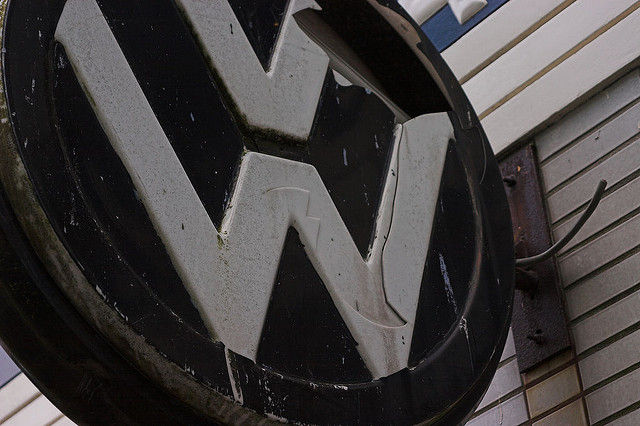
Volkswagen's US CEO testified Thursday that the decision to use emissions cheating software was not made at the corporate level. Instead, it was "software engineers who put this in for whatever reason," Michael Horn told a congressional panel that is investigating the scandal.
What's more, Horn told US lawmakers that the German automaker was withdrawing its application to sell 2016 autos with 2.0-liter diesel engines because they don't comply with US emissions standards. Horn testified that the 2016 vehicles were equipped with the same type of software that allowed millions of VW diesel vehicles to cheat pollution tests. "As a result, we have withdrawn the application for certification of our model year 2016 vehicles. We are working with the agencies to continue the certification process," Horn told the House Committee on Energy and Commerce Subcommittee on Oversight and Investigations.
"On behalf of our company, and my colleagues in Germany, I would like to offer a sincere apology for Volkswagen's use of a software program that served to defeat the regular emissions testing regime," Horn added. Horn was emphatic that there was no internal, executive-level decision to program the emissions software to cheat.
Horn testified that three VW workers have been suspended over the issue and that "this was not a corporate decision" to outfit vehicles to dupe emissions tests.
Rep. Chris Collins (R-NY) told Horn later in the proceeding: "I categorically reject everything VW is saying about a couple of rogue engineers. It goes way, way higher than that." Collins labeled the fraudulent software code as "pixie dust."
For his part, Horn told lawmakers that the automaker is working on "software and hardware solutions."
When asked how the cheating software worked, Horn said he didn't know. "Personally, no. I'm not an engineer," he said.
Horn also testified that an internal investigation is ongoing to determine exactly who was responsible for approving the use of the emissions-defeating software. He later promised that VW "can fix these vehicles to achieve emissions standards." He added that "there might be a slight impact on their performance."
The VW scandal came to light when researchers from the International Council on Clean Transportation and West Virginia University performed all kinds of tests on VW vehicles, discovering that when the vehicles were on the road, they polluted substantially more than when they were being tested for pollution emissions. Nobody could make any sense of how that could be. So the US Environmental Protection Agency threatened not to approve the automaker's 2016 models for sale. In response, the automaker said last month that its software was designed to hoodwink emissions tests for diesel vehicles dating back to 2009.
"The company's word isn't worth a dime," said Rep. Jan Schakowsky (D-Ill.) at the outset of the hearing.
Horn's testimony came a day after the Germany-based automaker announced that, in the coming months, it will begin the largest recall in history to fix affected VWs in Europe. A US recall time frame has not been set.
This isn't the first time VW has come under fire for an emissions scandal. In 1973, for example, the Environmental Protection Agency noted (PDF) that Volkswagen sold around 25,000 cars with temperature-sensing switches that were used to deactivate the emissions control system. Specifically, Volkswagen’s Fastback and Squareback 1973 models would sense low temperatures and cut out the cars' exhaust recirculation system. In addition, 1973 VW buses had switches that would override "the transmission controlled spark-advance system at low temperatures."
reader comments
285